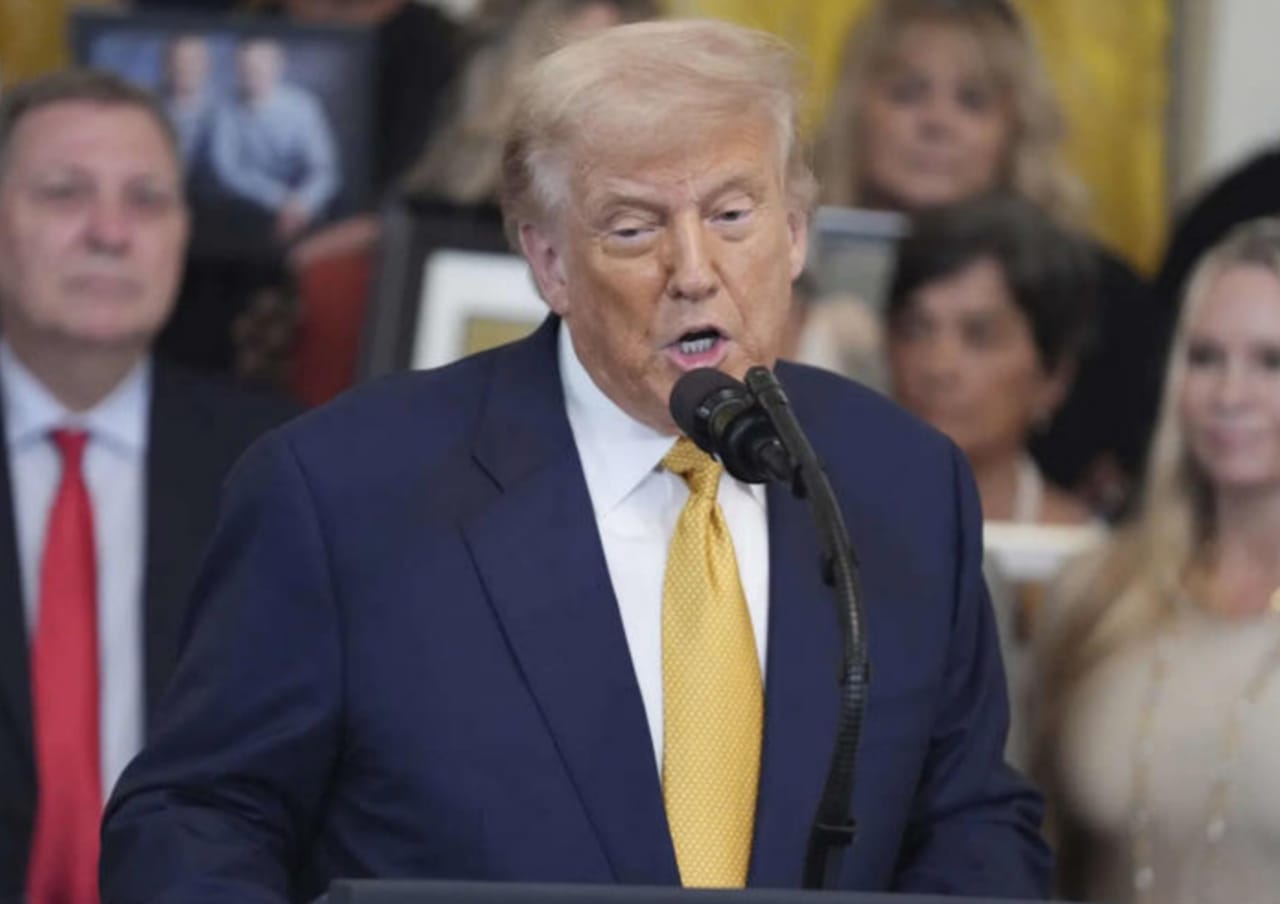
By Sulagna Halder
Washington DC:
US President Donald Trump’s sweeping tariff measures have yielded a substantial windfall of nearly $50 billion in customs revenue, as most global trade partners have refrained from significant retaliation.
Since the introduction of his broad tariffs, which include a minimum 10 per cent on most imports and elevated duties of 50 per cent on steel and aluminium, and 25 per cent on autos, customs revenue surged to a record $64 billion in the second quarter of 2025. This marks a $47 billion increase from the same period in 2024.
Remarkably, only China and Canada have responded with retaliatory tariffs, while major trading blocs such as the EU and Mexico have delayed or softened their responses in favour of negotiations. “America’s trading partners have largely failed to retaliate,” notes The Irish Times, describing the world’s reluctance to escalate as countries “chickening out”.
Economists attribute the muted international response to pragmatic caution. According to modelling by Capital Economics, a high‑intensity trade war with reciprocal tariffs averaging 24 per cent might shave 1.3 per cent off global GDP over two years. In contrast, a protracted 10 per cent tariff regime would likely trim only 0.3 per cent.
A White House official told The New York Post that the tariff revenue validates the administration’s strategy: “We hold the cards. They have way more to lose than we do.”
However, the tariff surge has fanned inflationary concerns. US consumer prices had already risen by 2.7 per cent in June, the highest since February. The Congressional Budget Office estimated that maintaining the current tariffs could reduce the federal deficit by $2.8 trillion over the next decade, though the recently enacted tax‑and‑spending bill may add up to $4 trillion to national debt by 2035.
Despite whispers of escalating duties, Trump has threatened tariffs of up to 50 per cent on Brazil and 35 per cent on Canadian goods, global powers remain hesitant. The EU is holding off on planned retaliatory tariffs ahead of an 1 August deadline, aiming to preserve ongoing talks. Mexico has similarly avoided confrontation by opting for negotiation.
Supply‑chain analysts emphasise that multinational corporations such as Apple, Adidas and Mercedes are cushioning American consumers from the full brunt of tariffs by distributing costs across global markets. “Global brands can try and swallow some of the tariff cost. but the majority will have to be distributed across other markets,” said Simon Geale, executive vice‑president at Proxima.
As the world watches whether the EU and others will escalate before August, uncertainties loom. Diplomatic ties, including US support for Ukraine, add complexity to Europe’s response. For now, Trump’s tariff gambit has delivered a hefty financial gain with limited blowback, though its long‑term economic and political consequences remain to be seen.